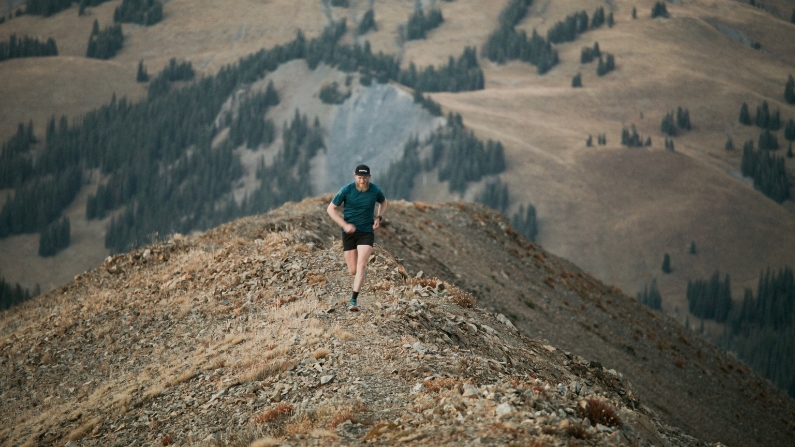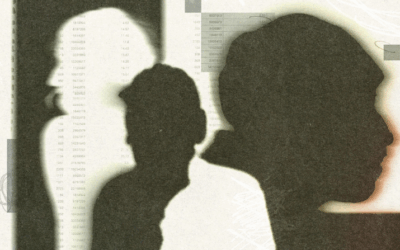Stay up to date on the latest deep dives into Jackson’s happenings – subscribe to Jackson Unpacked, available wherever you get your podcasts.
A content warning that a segment of this episode of Jackson Unpacked covers mental health and suicide.
Wellbeing is on the decline in the Tetons, according to recent findings from the Teton Behavioral Health Alliance. Their findings indicate that it’s in part because of the unique mental health struggles residents in mountain towns face — whether it’s the transient nature of tourist-based economies, high alcohol use or access issues when it comes to getting adequate care.
Having conversations about mental health isn’t always the easiest, either. Professional skier and ultra runner Drew Petersen believes that this doesn’t have to be the case. This fall, he’s sharing his own story with mental health struggles with the film “Feel It All” to keep the conversation going and remind folks that they aren’t alone in their struggle. KHOL’s Jenna McMurtry caught up with Drew to learn more about the film ahead of its tour stop at the Wydaho Film Fest this past weekend.
Drew Peterson: My name is Drew Petersen. I’m a professional skier, passionate ultra runner and all sorts of other things, mostly a storyteller. I’m from Silverthorne, Colorado, but I’ve got roots kind of all across the West, and love the Tetons.
Jenna McMurtry: How did you get to making this film?
DP: I’ve been working on “Feel it All” for the past two and a half years and I’m super excited to share it with the world. It really started out of this deep volition that I knew I could help people by sharing my story and throughout making this film, I went about doing so with the intention and mission of creating that impact in mind.
JM: What can people expect?
DP: I focus on sharing my own story because that’s obviously what I’m an expert of. But my story and my mental health journey really is the story of our community, whether that be mountain towns like my hometown or either side of the Tetons, but really the Rocky Mountain West. And, so I share my story of mental health struggles to shine light on the mental health and suicide crisis that’s happening throughout our communities. And you know, the number one thing is that the solution starts with talking about it. So on an individual level, I hope that people watch this film and walk away from it feeling less alone. But, on a community level and on a societal level, my hope and my goal is that it elevates the conversation of mental health in a way that we can shift culture, in a way that we really celebrate and honor and prioritize mental health as a core part of mountain culture.
JM: It’s great to see how many mountain towns have already seen it, and it’s coming to Jackson and the Wydaho Film Fest this week. Mental health in the mountains really seems to be, from my understanding, picking up steam as a conversation point in ways maybe it hasn’t before. How have you seen that conversation change over the years?
DP: I think that the conversation is definitely growing, which is a great thing. That really comes from a few different angles, and the first is necessity and even desperation because of the mental health and suicide crisis. Seven of the 10 Rocky Mountain states consistently rank in the top 10 highest suicide rates in the country, and that’s largely driven by high suicide rates in counties and towns where our mountain communities and even our ski resort communities are focused. So, that’s the number one reason is like we really have to have this conversation, and it does come out of desperation as we lose more lives to suicide.
The other elevation in this conversation comes from a few different angles. I think a lot of it is driven by a younger generation that wants to see this change and wants to be able to create their own culture for their future where mental health is not just accepted, but normalized. And you know, for me, like personally, my lens is, you know, through the way that I’ve elevated this conversation and the people that I connect with, and that’s through using sport and art as the entry point, so that it’s an inclusive, appealing conversation to take part of.
JM: From your understanding, what do you think it is about the Mountain States in this region that makes mental health, as a topic, as an issue, materialize differently than say anywhere else?
DP: There’s a lot of different factors that are creating mental health and suicide crisis of the Rocky Mountain West. At the core of it, we do live in these amazing places, and in many ways, it’s paradise. We’re living the dream. It’s an idyllic lifestyle. But the reality is that even though we live in the mountains and get to wake up to the most beautiful views, arguably, on the planet every single day, we can also struggle, because struggle is a shared part of the human experience for every single human on this planet. Specifically in these mountain communities, we’re seeing a lot of different factors at play — seasonal and transient communities, lots of economic struggles and disparity, a lack of really deep, intergenerational and long lasting connections and social frameworks. Then on top of that, I really think that a lot of it stems from having recreation centric identities, and with that, some of the cultures that come together with sport, oftentimes alcohol and substance abuse and what I call the ski-hard, party-hard, stay-hard mentality.
JM: Yeah, that definitely seems to ring true for a lot of mountain towns, for sure. With all that in mind, it’s definitely some deep stuff. What are some of the solutions that you have seen people or maybe not solutions, per se, but things people are working toward to address this, because it’s hard to say you know what exactly the solutions are right now?
DP: Well, the way that I view it is that the solution really comes from two angles. First is the culture, and second are the systems. And on the cultural side, like I say all the time, the solution does start with talking about it. So I think that elevating that conversation through art and sport is a really influential way to shift that culture. Like I said, a lot of that also comes from the younger generation driving that. But then what we also need to support and benefit from that cultural change is a change in the systems in our communities.
There are a lot of amazing nonprofits doing great work on the ground in our communities. I think that the most successful form of that that I’ve seen are therapy scholarships. There’s great orgs offering therapy scholarships that are often pretty easy to get. And, I mean, that’s a huge help, especially in some of the places where we are, where a lot of people have seasonal jobs and might not have great health benefits, or, you know, really tough access to behavioral health care that could help with telehealth therapy. And then, you know, the other factor that I think we’re seeing some success from is the driving industries in our communities, primarily the ski resort industry, is waking up to the fact that they need to take care of their employees, and they’re really the nucleus of our communities. So, as ski resorts start taking better care of their employees, that stems out into the community. But to really change all of this, it does have to include cultural change and systemic change.
After passing through Jackson as part of the Wydaho Film Fest, “Feel It All” will screen on October 12 in Jackson during the Quality Ski Time Film Tour.






